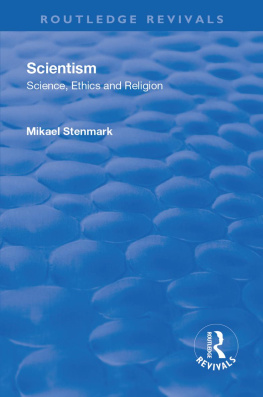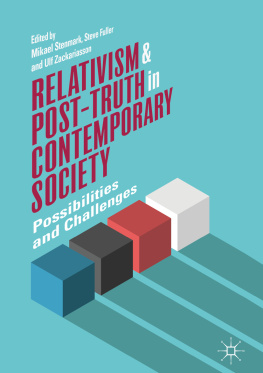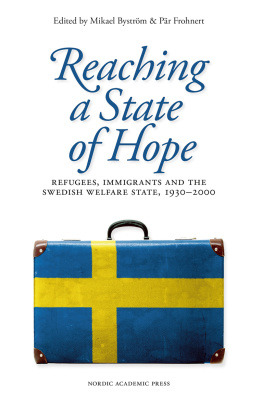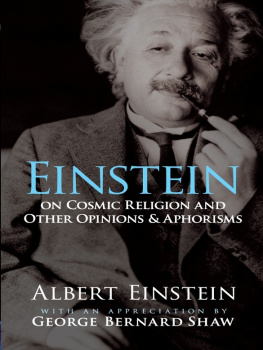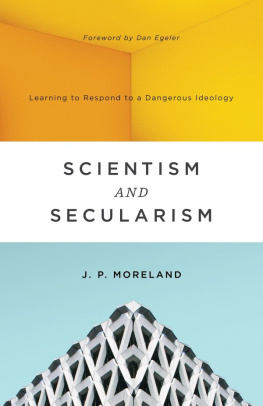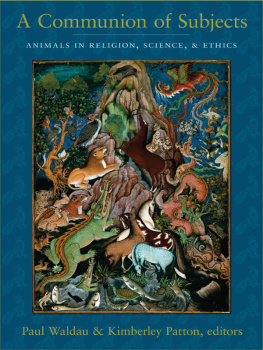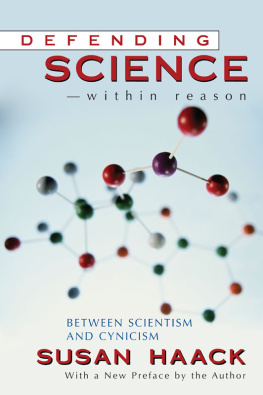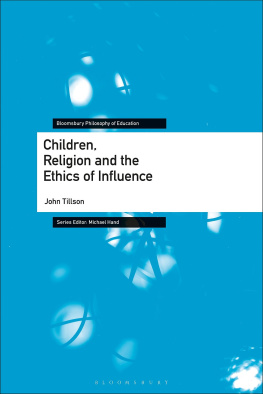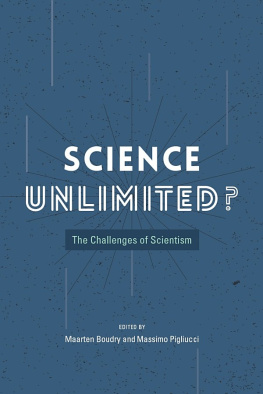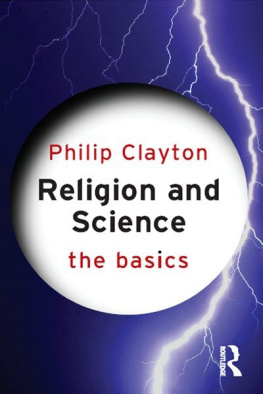SCIENTISM
Can science tell us everything there is to know about reality?
The intellectual and practical successes of science have led some scientists to think that there are no real limits to the competence of science, and no limits to what can be achieved in the name of science. Accordingly, science has no boundaries; it will eventually answer all our problems. This view (and similar views) have been called Scientism.
In this important book scientists views about science and its relationship to knowledge, ethics and religion are subjected to critical scrutiny. A number of distinguished natural scientists have advocated Scientism in one form or another Francis Crick, Richard Dawkins, Carl Sagan, and Edward O. Wilson and their impressive impact both inside and outside the sciences is considered. Clarifying what Scientism is, this book proceeds to evaluate its key claims, expounded in questions such as: Is it the case that science can tell us everything there is to know about reality? Can science tell us how we morally ought to live and what the meaning of life is? Can science in fact be our new religion? Ought we to become science believers? Stenmark addresses these and similar issues, concluding that Scientism is not really science but disguised materialism or naturalism; its advocates fail to see this, not being sufficiently aware that their arguments presuppose the previous acceptance of certain extra-scientific or philosophical beliefs.
Ashgate Science and Religion Series
Science and religion have often been thought to be at loggerheads but much contemporary work in this flourishing interdisciplinary field suggests this is far from the case. The Ashgate Science and Religion Series presents exciting new work to advance interdisciplinary study, research and debate across key themes in science and religion, exploring the philosophical relations between the natural and social sciences on the one hand and religious belief on the other. Contemporary issues in philosophy and theology are debated, as will prevailing cultural assumptions arising from the post-modernist distaste for many forms of reasoning. The series enables leading international authors from a range of different disciplinary perspectives to apply the insights of the various sciences, theology and philosophy and look at the relations between the different disciplines and the rational connections that can be made between them. These accessible, stimulating new contributions to key topics across science and religion will appeal particularly to individual academics and researchers, graduates, postgraduates and upper-undergraduate students.
Scientism
Science, ethics and religion
MIKAEL STENMARK
First published 2001 by Ashgate Publishing
Reissued 2018 by Routledge
2 Park Square, Milton Park, Abingdon, Oxon, OX14 4RN
711 Third Avenue, New York, NY 10017, USA
Routledge is an imprint of the Taylor & Francis Group, an informa business
Copyright Mikael Stenmark 2001
Mikael Stenmark has asserted his moral right under the Copyright, Designs and Patents Act, 1988, to be identified as the author of this work.
All rights reserved. No part of this book may be reprinted or reproduced or utilised in any form or by any electronic, mechanical, or other means, now known or hereafter invented, including photocopying and recording, or in any information storage or retrieval system, without permission in writing from the publishers.
Notice:
Product or corporate names may be trademarks or registered trademarks, and are used only for identification and explanation without intent to infringe.
Publishers Note
The publisher has gone to great lengths to ensure the quality of this reprint but points out that some imperfections in the original copies may be apparent.
Disclaimer
The publisher has made every effort to trace copyright holders and welcomes correspondence from those they have been unable to contact.
A Library of Congress record exists under LC control number: 2001022839
Typeset by Owain Hammonds
ISBN 13: 978-0-415-79141-0 (hbk)
ISBN 13: 978-1-315-21234-0 (ebk)
Contents
In writing this book I have incurred debts to many colleagues, friends and institutions. I gratefully acknowledge the financial support of the Swedish Council for Research in the Humanities and Social Sciences which made this whole project possible. I would also like to express my thanks to Philip Hefner for inviting me to the Chicago Center for Religion and Science where I spent six months in 1995 doing research. Vincent Brmmer kindly asked me to give a number of lectures at Utrecht University in 1998. This gave me the chance to formulate these ideas for the first time in public. For this and the thoughtful comments and the encouragement I received I am very grateful. The opportunity to discuss my ideas with Wentzel van Huyssteen and his graduate students at Princeton Theological Seminary in 1999 also helped me improve my arguments. Very important indeed have been my discussions with colleagues and students at the Department of Theology at Uppsala University, especially those with Eberhard Herrmann and Carl-Henric Grenholm. The manuscript was also read in parts by Peter Byrne, Olof Franck and Linda Zagzebski, and I thank them for their very useful suggestions. Most of the material has not been published before, but as Evolution, Purpose and God, in Ars Disputandi: The Online Journal for Philosophy of Religion, 1 (20002001).
Western society has been much shaped by scientific thought and discoveries. We depend not only practically on science in our lives. The theories and methods of science also shape our thinking and attitudes. The overwhelming intellectual and practical successes of science that lie behind its impact on our culture have led some people to believe that there are no real limits to the competence of science, no limits to what can be achieved in the name of science. There is nothing outside the domain of science nor any area of human life to which science cannot successfully be applied. A scientific account of anything and everything constitutes the full story of the universe and its inhabitants. Or, if there are limits to the scientific enterprise, the idea is that science, at least, sets the boundaries for what we humans can ever know about reality. This view (or similar views) has sometimes been called Scientism.
Scientism in one version or another has probably been around as long as science has existed. Recently, however, a number of distinguished natural scientists have advocated Scientism in one form or another. The scientists I have in mind in particular are Francis Crick, Richard Dawkins, Stephen Hawking, Carl Sagan and Edward O. Wilson. These scientists, besides receiving a number of prestigious scientific prizes and awards, have sold an enormous number of books. The views of these scholars have been discussed in newspapers and have been broadcast on radio and television. Although Scientism has been around for a while, the great impact these advocates of Scientism have had on popular Western culture is new. They have brought not only science but also Scientism into the living rooms of ordinary people. But, of course, one need not be a scientist to be a defender of Scientism. The view in one version or another is quite popular among philosophers these days.1 Some politicians can even be viewed as its champions. Jawaharlal Nehru, the first prime minister of independent India, wrote,
It is science alone that can solve the problems of hunger and poverty, of insanitation and illiteracy, of superstition and deadening custom and tradition, of vast resources running to waste, of a rich country inhabited by starving people. Who indeed could afford to ignore science today? At every turn we seek its aid. The future belongs to science and to those who make friends with science.


